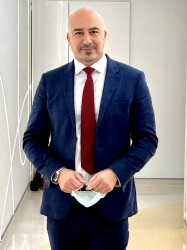BibTex format
@article{El-Osta:2019:10.7861/futurehosp.6-1-s91,
author = {El-Osta, A and Bagkeris, E and Coker, D and Wadhera, M and Hursthouse, N and Heaton, A and Majeed, A},
doi = {10.7861/futurehosp.6-1-s91},
journal = {Future Healthcare Journal},
pages = {91--91},
title = {Workplace health promotion using a digital health programme with monthly telecoaching to improve clinical and lifestyle-related outcomes.},
url = {http://dx.doi.org/10.7861/futurehosp.6-1-s91},
volume = {6},
year = {2019}
}

